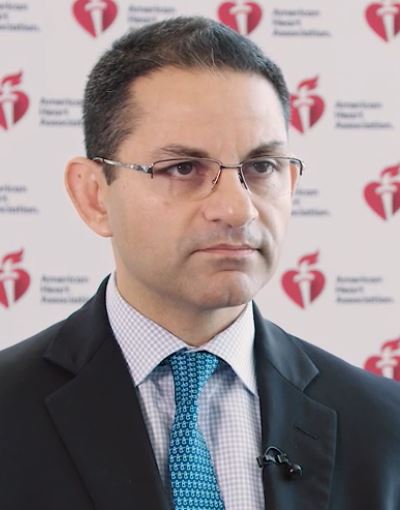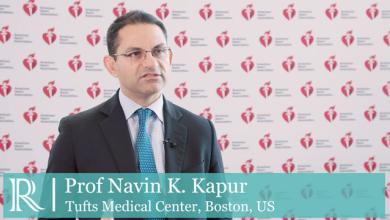
Navin K Kapur
Associate Professor
Tufts Medical Center, Boston, US
Expertise
Biography
Dr Navin K Kapur, MD, FAHA, FACC, FSCAI is Executive Director, The CardioVascular Center for Research and Innovation (CVCRI); Director, Acute Mechanical Circulatory Support Program; Director, Interventional Research Laboratories; Director of Cardiac Biology Research Center, Molecular Cardiology Research Institute (MCRI); Associate Professor, Tufts University School of Medicine.
Dr Kapur's clinical expertise focuses on invasive hemodynamics, mechanical circulatory support, complex percutaneous coronary intervention, and interventional therapies for patients with advanced heart failure. Dr Kapur’s translational research focuses on acute and chronic heart failure, circulatory support device development, and cardioprotective mechanisms in the setting of acute myocardial infarction. His laboratory was the first to identify that first unloading the left ventricle and delaying coronary reperfusion activates a cardioprotective signaling program that reduces myocardial damage during a heart attack.
Dr Kapur is the recipient of grant funding from the National Institutes of Health, American Heart Association, and several industry sponsors. He serves on several national committees involved with the American Heart Association, the American College of Cardiology, the Heart Failure Society of America, and the Society for Cardiac Angiography and Interventions.
Media
Articles by Navin K Kapur, Associate Professor
Navin K Kapur,
Published:
Citation: Interventional Cardiology Review 2019;14(3 Suppl 2).
Navin K Kapur,
Published:
Citation: Interventional Cardiology Review 2019;14(3 Suppl 2).
Howard Chen, Zehedina Khatun, Lija Swain, et al
Published:
Citation: Interventional Cardiology Review 2019;14(3 Suppl 1):A28.
William O’Neill, Navin K Kapur,
Published:
Citation: Interventional Cardiology Review 2019;14(3 Suppl 1):A27.
Lija Swain, Xiaoying Qiao, Lara Reyelt, et al
Published:
Citation: Interventional Cardiology Review 2019;14(3 Suppl 1):A26.
Navin K Kapur, Lara Reyelt, Paige Crowley, et al
Published:
Citation: Interventional Cardiology Review 2019;14(3 Suppl 1):A25.
Colin S Hirst, Navin K Kapur,
Published:
Citation: Interventional Cardiology Review 2019;14(3 Suppl 1):A24.
Nikolaos A Diakos, Katherine Thayer, Mohyee Ayouty, et al
Published:
Citation: Interventional Cardiology Review 2019;14(3 Suppl 1):A23.
Navin K Kapur,
Published:
Citation: Interventional Cardiology Review 2017;12(2 Suppl 2):1–28
Navin K Kapur,
Published:
Citation: Interventional Cardiology Review 2017;12(1 Suppl 1):1–24.






